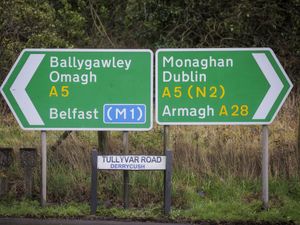Economic and well-being gaps between Ireland and Northern Ireland ‘widening’
Ireland was outperforming Northern Ireland in most areas, including living standards, new Economic and Social Research Institute research found.

The gap in economic performance and well-being indicators between Ireland and Northern Ireland is widening, a report has found.
The research found that Ireland is outperforming Northern Ireland in most areas, including labour market trends, living standards, economic structures, education, health and overall well-being.
New research, published by the Economic and Social Research Institute (ESRI) and commissioned as part of the Institute’s research programme with the Shared Island Unit, Department of the Taoiseach, provides a high-level comparison of the economies of Ireland and Northern Ireland in recent years.
The research recognises that the economies north and south on the island are distinct in important structural respects.
Northern Ireland is part of the wider UK economy, with significant implications for trade and public policy.
Ireland, on the other hand, is a national-level economy and an EU member state, so direct comparisons between the two will not always be on a like-for-like basis.
Nevertheless, the research provides a range of insights on the relative performance of both economies over recent years.
The report found that Ireland’s population is growing faster than Northern Ireland’s, largely due to strong net migration in recent years.
This has resulted in Ireland having a younger population, with a lower old-age dependency rate.
There have also been shifts in the labour market over time.
Labour market participation in Ireland has increased significantly since 2010, widening the gap with Northern Ireland.
In 2022, the participation rate of those aged 16 to 64 was 76.8% in Ireland compared with 72.4% north of the border.
Employment rates in Ireland overtook Northern Ireland in the period after the financial crisis, reflecting Ireland’s strong recovery.
But due to the Irish economy’s highly open nature, the country’s labour market is more volatile than Northern Ireland’s, and experiences larger swings in unemployment, migration, and NEET (not in employment, education, or training) rates.
Turning to living standards and income, the report found widening gaps in all commonly used measures of living standards and these gaps favour Ireland.





